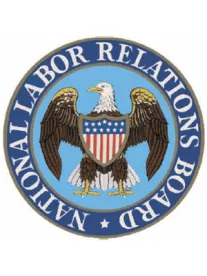With the recent nominations of William Emanuel and Marvin Kaplan to the two vacant positions on the National Labor Relations Board (“NLRB” or “Board”), the current composition of the NLRB consists of two Democrats and one Republican appointment. Employers continue to watch as this Administration and its agencies roll back prior initiatives and wonder when (if) similar initiatives can be expected at the Board.
Earlier this month, the U.S. House of Representatives introduced three bills to amend the National Labor Relations Act (“Act”) and reverse some of the policies advanced by the Board over the last eight years.
- The Employee Privacy Protection Act, if passed, will amend the Act and require that “lists of employees eligible to vote in organizing elections be provided” directly to the NLRB within seven days of the direction of an election. Currently, employers are obligated to submit that list within two days to the Union. Additionally, employers would need only to provide one form of contact (i.e., an employee’s home address, personal email address, home or mobile phone number); now, they must provide all such forms, if known.
- The Employee Rights Act would amend the Act to, among other things, only allow secret ballot elections, require selection of the bargaining representative by a majority of unit employees (as opposed to the majority of employees who vote in an election), and require representation elections in existing bargaining units that have experienced great turnover or expansion.
- The Workforce Democracy and Fairness Act would roll back the “quickie” or “ambush” election rules that the Board passed in 2015. The bill would change existing law in three material ways:
- It would require a hearing within fourteen days of the filing of a petition for election so that the parties can identify any “relevant and material pre-election issues;”
- It would require a period of at least thirty-five days between the filing of a petition for election and an election (an average increase of eleven days); and
- It would revert back to the “community of interests” standard that existed prior to the Board’s 2011 decision in Specialty Healthcare. Presently, the NLRB will direct elections in micro-units unless the employer can show that there is an “overwhelming community of interests” to include/exclude other job descriptions.
Last week, Senator Lamar Alexander of Tennessee introduced the Senate’s version of the Workforce Democracy and Fairness Act. That bill, which combines aspects of the House version and the Employee Privacy Protection Act, also would not permit a union election within thirty-five days after the filing of a petition for election so that an employer has time to mount its own educational campaign.




 />i
/>i

